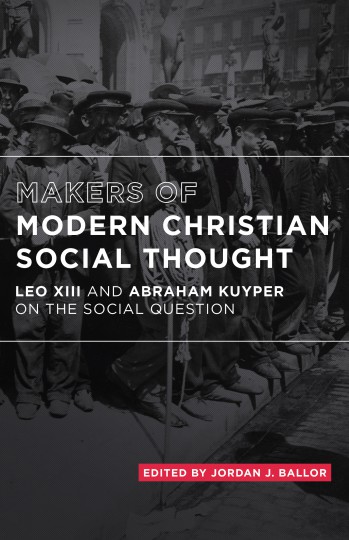 In this week’s Acton Commentary I examine the foundations of what is today identified as the “preferential option for the poor” in writings that appeared 125 years ago, Pope Leo’s Rerum Novarum and Abraham Kuyper’s “The Social Question and the Christian Religion.” These two texts have appeared in an anniversary volume, Makers of Modern Christian Social Thought: Leo XIII and Abraham Kuyper on the Social Question, now available from the Acton Book Shop.
In this week’s Acton Commentary I examine the foundations of what is today identified as the “preferential option for the poor” in writings that appeared 125 years ago, Pope Leo’s Rerum Novarum and Abraham Kuyper’s “The Social Question and the Christian Religion.” These two texts have appeared in an anniversary volume, Makers of Modern Christian Social Thought: Leo XIII and Abraham Kuyper on the Social Question, now available from the Acton Book Shop.
In the introduction to that volume, I touch on important themes that arise from these foundational texts, such as subsidiarity, solidarity, sphere sovereignty, stewardship, and property. In today’s essay, “The Christian Preference for the Poor,” I examine another theme that runs throughout both texts: the overt concern for the marginalized that is required within the context of any social order.
As Leo and Kuyper both observe, the wealthy, the well-connected, and the powerful can fare well under any regime. They can help to shape or reform laws and policies in their favor. But the poor and the marginalized have little influence and are least able to draw on their own reserves, whether capital or otherwise, in times of need.
In ancient Rome this lack of power was reflected politically in the office of tribune, about whom Lord Acton observes: “The powers conferred on the tribunes, that they might be the guardians of the weak, were ill defined, but practically were irresistible.” Acton goes on to describe how this office, designed to provide a safeguard and a voice for the poor, “was the most effective instrument for the defence of minorities ever devised by man.”
As Leo and Kuyper remind us, a salient question for discerning the justness of any social order must be how the poor fare and what protections, material and formal, they have against the tyranny of the majority. We do not have tribunes in modern America, but we do have constitutional protections and democratic representation. In his speech what Kuyper observes is that what the poor really need is not primarily material redistribution, but “better legislation.” What such legislation looks like remains one of the pressing issues of addressing the social question today.
This week’s commentary is adapted from the editorial of the forthcoming Fall 2016 issue of the Journal of Markets & Morality. Subscribe here!

